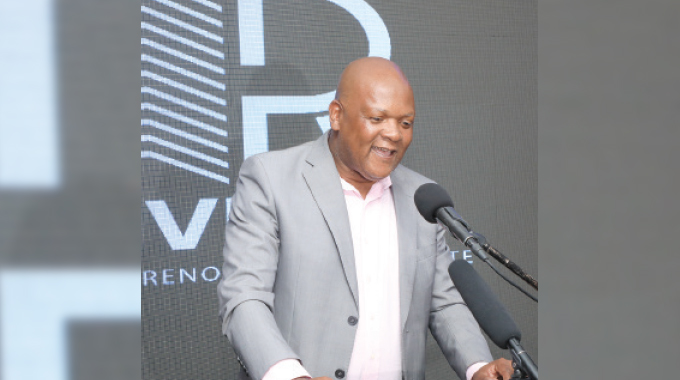Work towards your empowerment
invoked biblical quotes to encourage Zimbabweans to take ownership of their natural resources.
Addressing mourners at the burial of national hero Nervanay Nyashanu at the National Heroes Acre on new year’s day, Cde Nkomo intimated that God has given all the people of the world control over resources in their land and did not give permission to any race to exploit resources outside their national domains.
Hence, Zimbabweans should be left alone when they demand unfettered control of their resources through the indigenisation and economic empowerment programme.
Evangelist, Prophet Emmanuel Makandiwa also received flake from the same quarters for opening the Anti-sanctions petition launch with a powerful prayer that called on the almighty to rescue Zimbabwe from forces bent on destroying its economy, and its well-being. These two respected men in our society were criticised for allegedly mixing christianity and politics.
According to the critics politics and christianity are like water and oil with politics likely to contaminate the purified christianity.
So, christians should stay away from politicians and their programmes and vice-versa.
However, religious groups mainly because of their huge following and the respect their leaders command have always sought to influence the political dynamics in Zimbabwe and beyond.
In Zimbabwe we have seen some church groups releasing pastoral letters, reports and observation notes bordering on politics trying to influence the course of events in the country.
But when it comes to supporting Government initiatives it seems there is a deliberate ploy to try and isolate christians from participating in programmes initiated to advance the aspirations of local citizens.
Hence, calling on one section of the society to shun a national project, intended for the benefit of all citizens, because it is being championed by politicians is deceptive on the part of those concerned.
Government has embarked on a programme to indigenise the economy and empower citizens, redressing past economic imbalances, for the benefit of all Zimbabweans including traditionalists, atheists, moslems and of course christians.
While some progressive church organisations like ZAOGA have embraced the programme and initiated some projects to benefit their flock other conservative churches have sought to use the bible to discredit the programme.
While the bible obviously cautions against idolising material resources and wealth acquired through deceitful means for wrong motives it also provides advice on wise investment and a number of the commanding fathers of Israel like Abraham, Isaac, Job, Kings Solomon and David.
They were very wealthy men in their own right.
With one of God’s first instructions to men and women being to “subdue the earth and have dominion over it”, this is exactly what the Indigenisation and Empowerment programme is designed to do with regards to resources within the confines of Zimbabwe’s borders and under its soil.
Because the Almighty grants no favours or prejudice any of his people as intimated in Acts 10v34-35 where Peter realises “how true it is that God does not show favouratism but accepts men from every nation” each country whether the US, UK, Zambia, India, Zimbabwe or Honduras has a share of resources that its people are supposed to exploit.
Thus, benefiting from your country’s resources then proceeding to exploit other countries resources is despicable and any fair minded christian or believer should support efforts to redress such an anomaly.
In an acceptance of unequal distribution of resources and to dissuade believers from challenging the status quo and empowering themselves some preachers amplify the biblical teaching that urges members to forgo earthly treasures since their “eternal reward and citizenship is in heaven”.
This belief encourages docile acceptance of racism, economic discrimination, poverty and slavery.
On the other hand other preachers who have been drawing thousands to their sermons preach a gospel of hope of which economic prosperity is central.
In fact, prosperity is a blessing from God whereas poverty is despised by the Bible which says “Jesus became poor so that you through his poverty might become rich” (2 Corinthians 8-9).
Therefore, as Christians you ought to completely reject poverty and begin to take steps to empower yourself.
Another aspect probably affecting christian participation in economic empowerment programmes is a belief that prosperity cannot come in such a harsh investment environment precipitated by the impact of economic sanctions imposed on the country by the West.
But, according to the bible prosperity should be born of the word in spite of circumstances.
It cites the case of Isaac who “prospered, waxed great, made progress and prospered so much in a time of famine” that the Philistines envied him. (Genesis 26). Therefore, as a christian let your mind rise beyond the economic situation around you and begin working towards your empowerment.
Finally, the bible cautions against christians who believe that economic redemption can only be found in foreign lands for “where you are, is where God is”.
As long as you have faith, belief and a winning mentality you will always find redemption in your country of origin.
Instead of envying other nations and asking God for directions to distant greener pastures Zimbabwean christians should be like Peter and his fishermen friends who on Jesus’ instruction “casts their nets deeper” on the same spot they had toiled without success the whole night and inclosed a great multitudes of fish that their nets broke drown (Luke 5v4-7).
Therefore Zimbabwean christians and other believers alike should stop hiding behind the religious smokescreen, rally behind Indigenisation and Economic Empowerment programme and join thousands of other Zimbabweans as they seek to “cast their nets deeper” into Zimbabwe’s sea of natural resources and wealth
For, it is God’s desire for you to prosper exceedingly. (3 John v 2).
Amen!
l The writer is CEO of ZvavaBudya Empower-ment (Pvt) Ltd t/a ZV Empowerment He can be contacted on [email protected] or on 077 7 096 334.









Comments